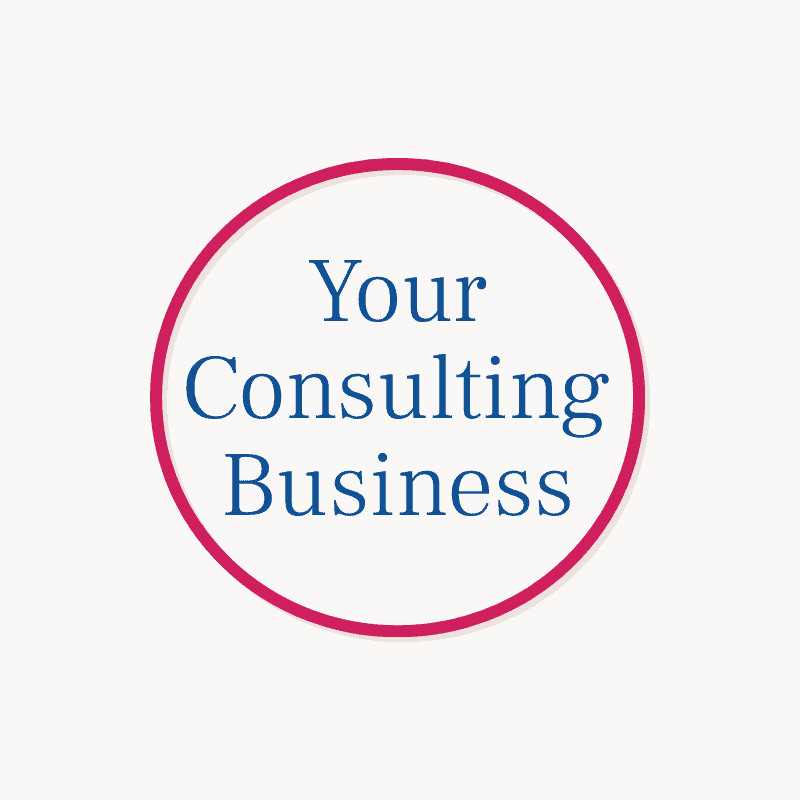
As you make the transition to consulting, how to find clients should be at the top of your agenda. Here we will address actions you can take.
Table of contents
What you might do in the transition

- If you had a chance to plan, you might already have taken steps to get started as a consultant, and you can complete them.
- You might have the opportunity to consult at the job you are leaving.
- Ask around if anyone you work with is aware of any consulting opportunities.
- Reach out to friends and former employers. If you are well regarded, you might get some leads or offers.
- You could look for work at a consulting company and it would be an opportunity to learn about consulting in your area.
If none of these are successful, you will have to dig deeper. Focus on the client, and what they may need. Know your niche and what you have to offer.
Who is your client?
I don’t build in order to have clients. I have clients in order to build.
Ayn Rand
You should develop a clear picture of the client you are seeking.
- What industry or area are they in? Are you looking for individuals, small businesses, large companies, local, state or federal government, non-profit organizations, or a mix.
- Who are the decision makers for consulting services in these entities?
- Where are these decision makers makers located in the organizations?
- What problems do they have?
Why would a client want to hire you?
- They lack special skills or knowledge that you have.
- The client does not have enough people and need more hands to do the work. They may be trying to hire more people or experts as employees, but they may need the help until they fill the positions.
- They may want to hire you as a consultant, because they want to employ you in their organization after a trial period. This may happen when they are having difficulty finding someone who would have the right skills and who would be a good fit.
- Your prospective client may need an outside opinion. This may be to make sure they are not biased or overlooking something. This could be for a difficult situation within an organization or one that is sensitive or politically difficult.
How would your client find you?
Network or build a network
Small events
These are fine if you are presenting at a meeting attended by prospective clients. If it is an event just for people to network, the chances are that the attendees will be there looking for opportunities rather than offering them.
Newsletters and emails
Sending these to potential clients that you know may help them keep you in mind for when opportunities come up.
Personally, I enjoy newsletters from some of the great people I’ve worked with in the past, especially who were interesting, friendly, fun to work with, accomplished, and productive. These include their annual newsletters about their family and work milestones.
When an interesting opportunity comes up and it seems that they will be a good fit, I contact them to ask if they are interested in my putting their name and contact information forward.
On the other hand, I’m inundated with emails and newsletters from people I don’t know or have had very limited contact. When these turn into a constant stream, it can become a burden. So, if you send emails to people you don’t know, make sure they can opt out.
Text messages from people I don’t know are annoying. I don’t think it’s a good idea to use them to generate new business unless you know the person, and you usually communicate with them that way.
Social media
If you are good at using LinkedIn, Facebook, Pinterest, or Twitter, this may work for you. It will depend on the profile of your clients, too. Because of this, some consultants will tell you not to bother, while a few will recommend using social media.
Speaking
Making presentations at professional or trade meetings or webinars in your areas of expertise is a good way to generate leads and attract new clients.
Seeking referrals
Certainly, you can get out the word that you are seeking referrals. If you do get many referrals, or at least enough to keep you busy, you may be able to use it as your sole method of finding new clients. Though, for many consultants, this may not be sufficient.
Calling, including cold calling
Calling people you know to get the word out and to find out what your prospective clients needs may be, can be helpful. This is mostly, when you have previously performed well and they know it, and you got on really well with them.
Cold calling is low yield. When people don’t know you, they are much less likely to be responsive. Those who answer the calls can be a barrier to reaching the true decision makers. You may also reach very busy people who are not the decision makers. They may be polite, friendly, and helpful on the phone, but they may not follow up, and they would not generally be able to make as good a case for hiring you as a consultant as you could yourself.
Set up your own website
Your website is helpful in establishing your credibility, providing information about your business, putting forward your brand, communicating news and announcements, and promoting your business.
Offer something of value and create helpful content
White papers, documents, spreadsheets, forms, templates, checklists, and presentations may be helpful to potential clients.
Advertise
Some people advocate for this. This is generally low yield, but you could try it if other approaches are not working.
Pursue or attract clients?
If you’re good at what you do, but not a known expert, you will likely have to pursue clients.
Pursue here means to actively seek clients, but you should not pester them. You may lose more than you would gain.
It helps have a reputation that you can make things happen
You’re efficient, productive, and take projects rapidly to completion. If you do, potential clients may approach you. The more people with a high opinion of your work or knowledge, the better your chances of attracting clients.
Attracting clients is better than pursuing them.
Known experts attract clients. When clients attend events where you are speaking on your area of expertise, read your publications, see your name in the media, social media, or wherever, as an known expert, you are likely attract clients. Once you start consulting, people seeing your performance at meetings may recommend you to other potential clients.
In my case, I made the transition to consulting as a known expert in specific areas in academia and industry. When I decided to leave my job to start a consulting business, I handed in my notice. Then I announced in a company wide email that I was leaving my company, thanked everyone, and mentioned the upcoming date of my future departure. In that message, following the usual standards, I did not mention where I was going.
I began to receive calls the next day (while I was of course still working there). In all the years since then, I have only consulted by word of mouth or by people approaching me as a known expert.
So, it definitely helps to be an expert. If not, you can build your expertise and a profile as an expert. If you are not already and expert, it will take time, and the higher the level of expertise you are striving to acquire, the longer it will take. In the meantime, until you are considered an expert in an area or areas, you will need to pursue clients, while you build your expertise.
How many clients do you need?
While this depends on your area of consulting, you don’t necessarily need to have a constant stream of numerous new clients.
On the flip side, I know someone who had one big client bringing in 80% of the revenue, when the client decided to move the activity in-house at their own company. All of a sudden, the shortfall became a crisis to be survived. So clearly, just one client is not a good situation.
Repeat clients are very important. This will save you from much of the effort of finding new clients and setting up new projects. Working well with people and performing well will help to get repeat business. With a few good clients with longer term projects or a contract that allows flexibility in adding projects and repeat business, you can be very busy.
Having too many clients can increase your workload to the point that your performance may suffer. Your clients will expect you to be very responsive to them and to meet all of their deadlines and requirements. Your work-life balance will also suffer.
In conclusion
I hope this article is useful to you, and helps you to think through and take actions to find clients for your consulting business. We have looked at actions you can take as you make the transition from working for someone else in a job to working for yourself as a consultant. You have seen that it is necessary to consider who your client is and why they would want to hire you. Also, we have looked at how your clients would find you and how many clients you may need.
I wish you the best in gaining new clients for your consulting!
We have more information on this site on how to get started in consulting and in the blog articles.
Join Amazon Prime Music – The Only Music Streaming Service with Free 2-day Shipping – 30-day Free TrialAs an Amazon Associate I earn from qualifying purchases.

Comments are closed